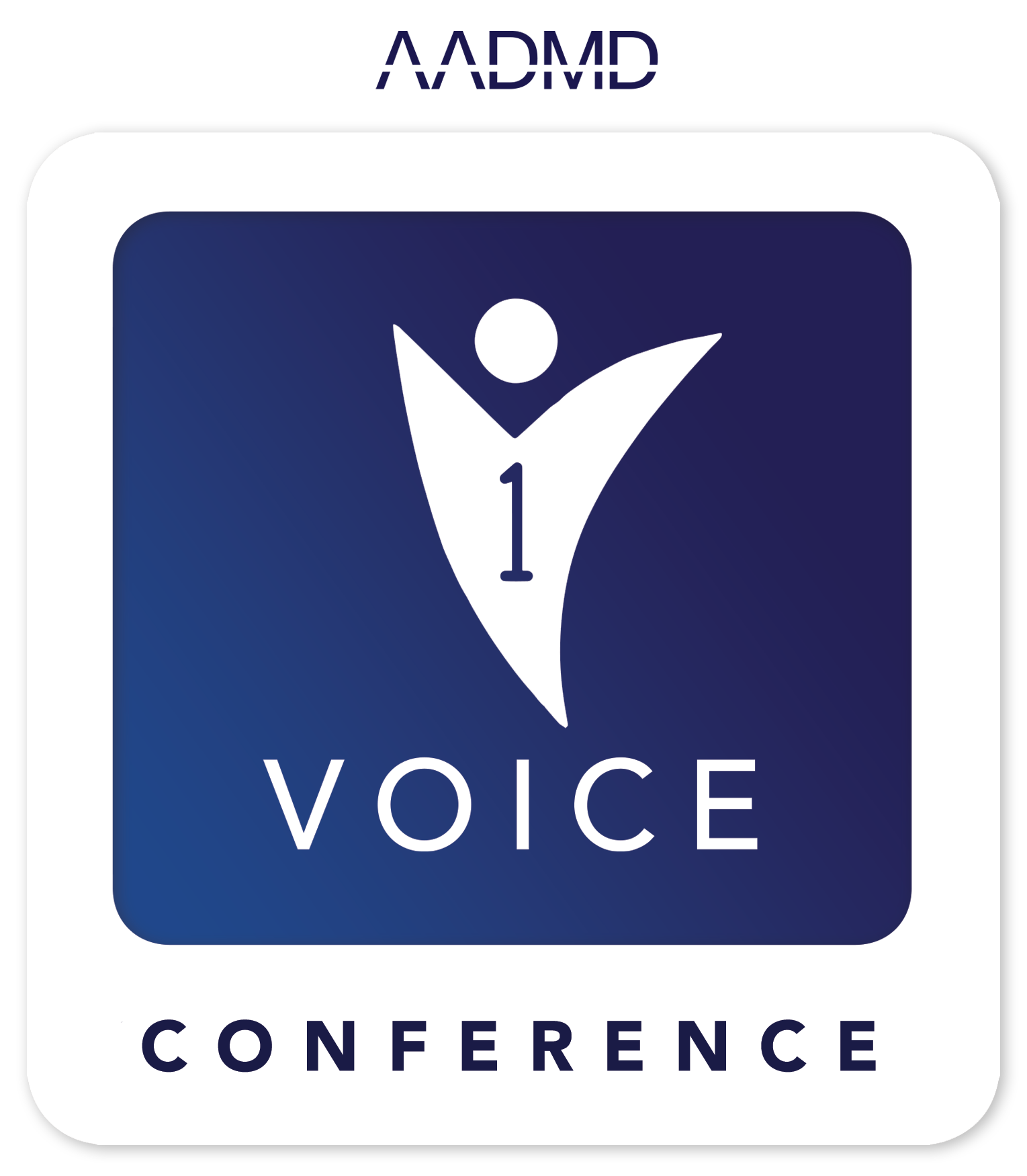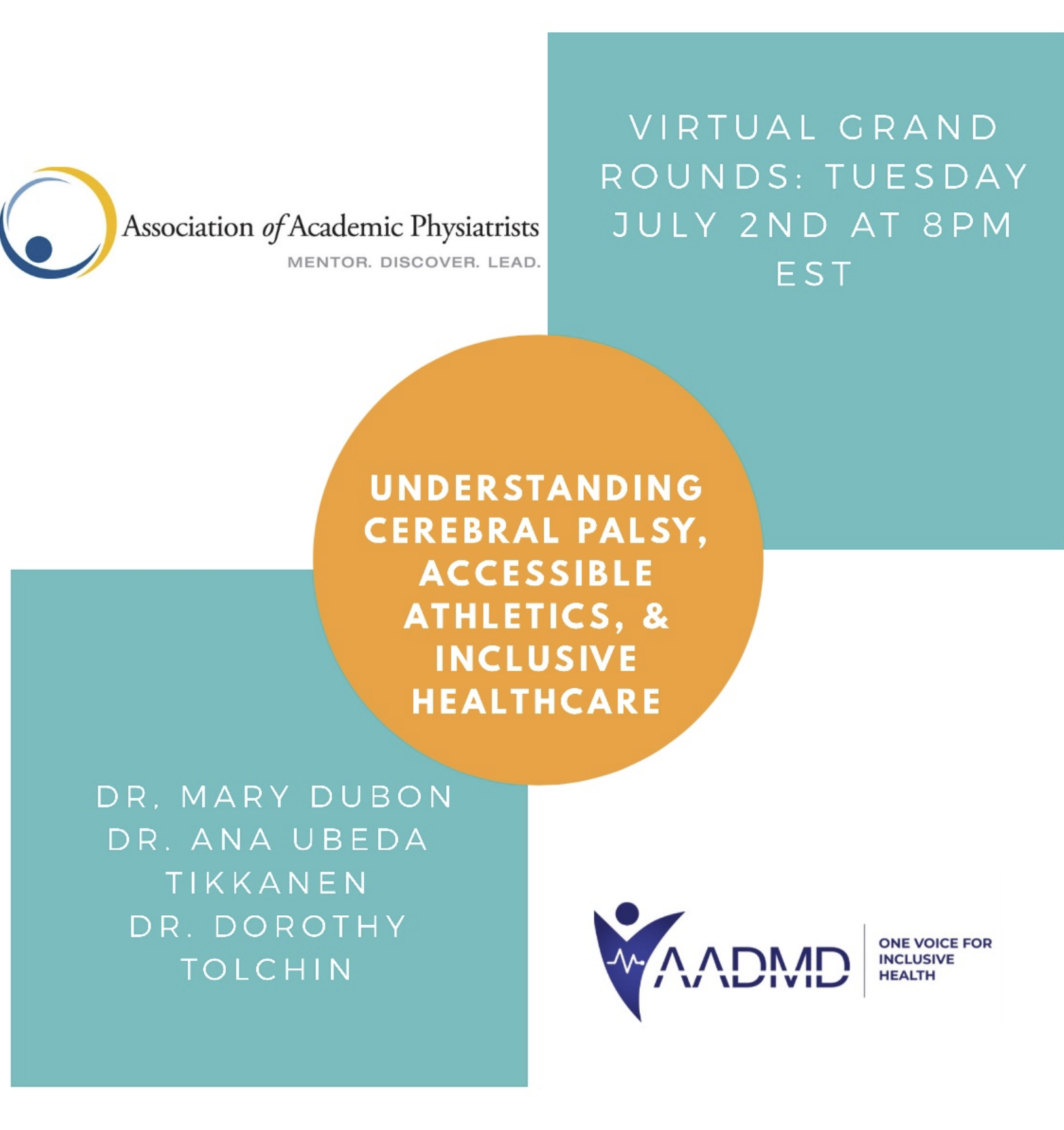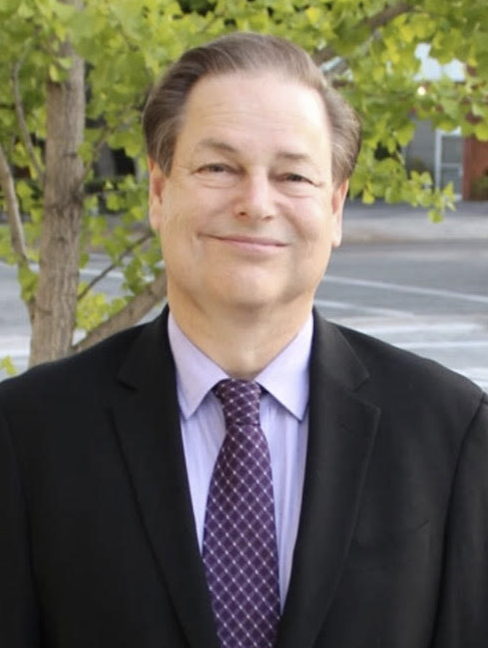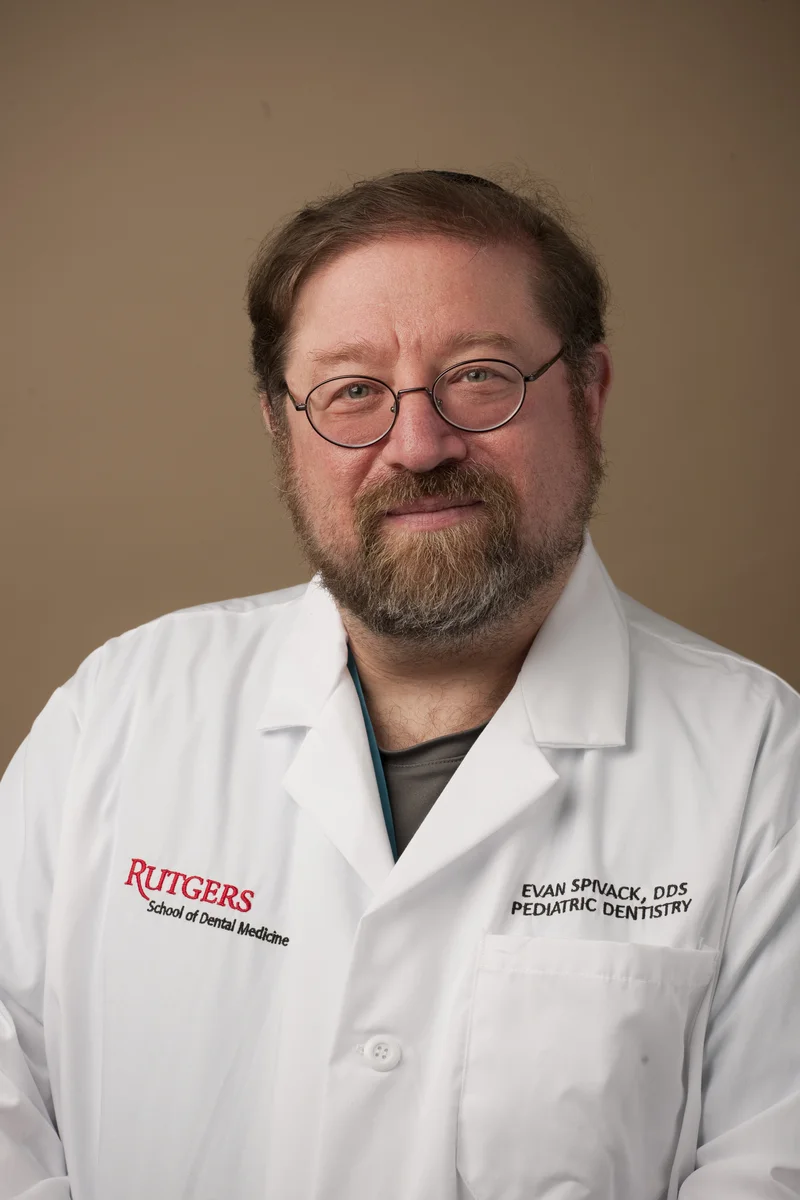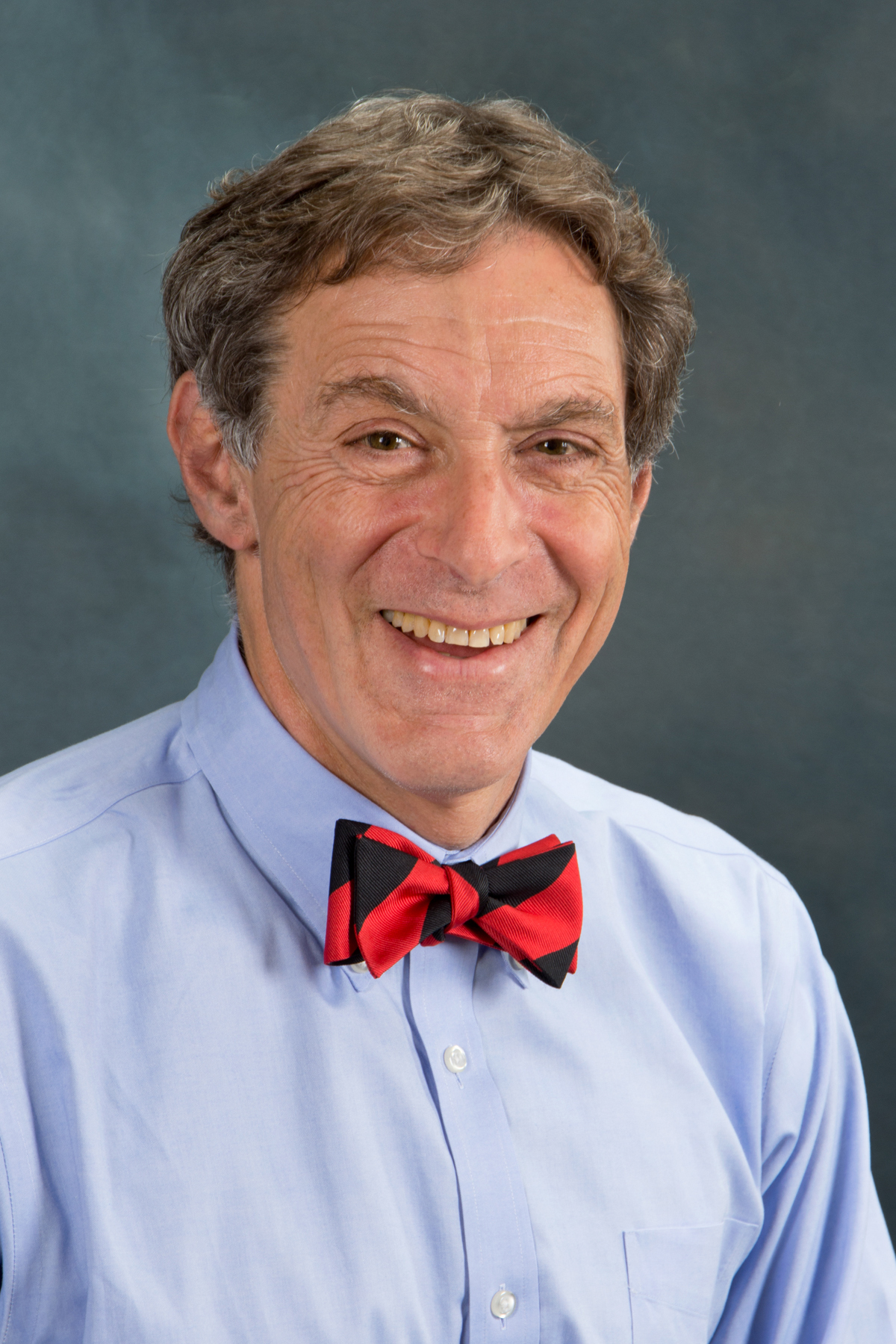Join us for a special webinar made possible by Neurocrine Biosciences
May 8, 2024 | 12pm Eastern
Speaker: Dr. Sharon Cahoon-Metzger is a Senior Medical Liaison with the Neurocrine Biosciences Medical Team. She earned a PhD in Developmental Neurobiology and was faculty at Dartmouth College School of Medicine prior to joining the biotech industry.
Topic: Anticholinergics and Drug Induced Movement Disorders Brief review of drug-induced movement disorders, with background on sensitive dopamine/acetylcholine balance. Review of hypo- vs hyperkinetic disorders and how treatment approaches should differ between them, including the use of anticholinergics. Review of anticholinergic systemic effects and AEs and review of gradual tapering of anticholinergic meds to prevent movement exacerbations.
VGR Webinar Series
Every THIRD Tuesday* of the month the AADMD Student & Resident Committee hosts interdisciplinary webinars for clinicians to learn from colleagues in a patient-centered manner with the purpose of encouraging comprehensive care provision to patients with IDD.
*Day of the week is subject to change.
PAST WEBINARS
2024
All webinars are available to re-watch through AADMD’s One Voice Network.
Students/Residents always watch for free, others must have a paid subscription, starting at just $25 a year.
2023
2022
2021
Part 10 - Interdisciplinary Care During Covid
Patrick Swanson, MD | Kristin Compton, DMD | Stephen Foreman, BCBA | Matthew Holder, MD
November 4, 2020 | 7:00pm EST
Part 9 - Neuropsychiatric Care of Adults with IDD
Benjamin Margolis, MD
October 6, 2020 | 8:00pm EST
Part 8 - Community Support Safeguards During the COVID-19 Pandemic
Barbara Merrill, Mary Sowers, Gilbert Plaza, Joe MacBeth, David Fray, Nicole Jorwis, and David Ervin
September 1, 2020 | 8:00pm EST
2020
Part 1 - What You Need to Know
Geoffrey A. Weinberg, MD
Tuesday, April 7, 2020 | 8:00pm EST
Part 2 - Concerns of People with IDD & Dementia
Seth M. Keller, MD , Jadene Ransdell & Paul Landers
Wednesday, April 22, 2020 | 8:00pm EST
Part 3 - Special Olympics Responds
Alicia Bazanno, MD, PhD, MPH & Dustin Plunkett
Tuesday, May 5, 2020 | 8:00pm EST
Part 4 - Lessons from a Seasoned Advocate
Rick Rader, MD, Faaidd,DHL(Hon)
Wednesday, May 20, 2020 | 8:00pm EST
Part 5 - Interview from Wuhan
Meng XiouMei, RN, Shirley McMillan, RN, PhD, CDDN and David Fray, DDS, MBA
Wednesday, June 03, 2020 | 8:00pm EST
Part 6 - Interview from China
George Kang, DDS, MBa, Kate Gaynor, MD, Tad Pu, MD, MEd, and Alan Mease, MD, FAAP
Wednesday, July 15, 2020 | 8:00pm EST
Part 7 - Learning From Black Mothers of Persons With Disabilities
Ullanda niel, MD, and Nazilla Khanlou, Rn, phD
August 4, 2020 | 8:00pm EST
How to Integrate Oral Health Easier with the Oral Health Prevention Primer | Matilde Hernandez, DDS
Tuesday, March 3, 2020 | 8:00pm EST
Overcoming Barriers in the Medical Assessment of People with IDD| Paula Robinson, MD
Tuesday, February 4, 2020 | 8:00pm EST
Trauma & Individuals with IDD| Karyn Harvey, PhD
Tuesday, January 7, 2020 | 8:00pm EST
2019
Sexuality & Individuals with IDD| Sharon Potter, M.Ed.
Tuesday, November 5, 2019 | 8:00pm EST
Mental Health & Developmental Disabilities| Ty B. Aller, PhD
Tuesday, October 1, 2019 | 8:00pm EST
Oral Health & the Overall Health Connection for People with IDD| David Fray, DDS, MBA
Tuesday, September 3, 2019 | 8:00pm EST
Understanding Cerebral Palsy, Adaptive Athletics & Inclusive Healthcare
Dorothy Tolchin, MD, Edm / Ana Ubeda Tikkanen, MD, PhD / Mary Dubon, MD
Tuesday, July 2, 2019 | 8:00pm EST
BIOS
Dr. Ana Ubeda Tikkanen, MD, PhD completed her residency in Physical Medicine and Rehabilitation in the Gregorio Marañon Hospital in Madrid, followed by a Research Fellowship in Rehabilitation in Congenital Heart Disease Patients in the Pediatric Cardiology Department at Boston Children’s Hospital. During that time she obtained her PhD. She then completed her Pediatric Rehabilitation Fellowship at Spaulding Rehabilitation Hospital in Boston in 2015. The focus of her practice is providing the best rehabilitation care to children with disabilities. She has written multiple book chapters and publications on the subject. Besides being an Instructor of Harvard Medical School, she is currently an attending at Spaulding Rehabilitation Hospital and Boston Children’s Hospital where she is part of the multidisciplinary Cerebral Palsy Clinic and she is developing a rehabilitation program for the Pediatric Cardiovascular Surgery Department.
Dorothy Tolchin, MD, EdM is a researcher and educator at Spaulding Rehabilitation Hospital/Massachusetts General Hospital/Harvard Medical School, and the course director for the Harvard Medical School month-long clinical elective clerkship in PM&R. Dr. Tolchin received her MD from Harvard Medical School, completed Physical Medicine and Rehabilitation residency/chief residency at Spaulding Rehabilitation Hospital, and completed post-residency fellowships in neuromuscular medicine/electromyography (Partners Neurology, Harvard Medical School) and hospice and palliative medicine (New York Presbyterian Hospital, Columbia University Medical Center). She also holds an EdM from the Harvard Graduate School of Education. Dr. Tolchin has over twenty years of experience in disability advocacy and innovative curriculum design. Her focus is on helping medical students and residents understand how the unique needs of people with disabilities and their families can be addressed through informed, compassionate care.
Mary Dubon, MD is a Pediatric Rehabilitation Medicine and Pediatric Sports Medicine physician at Boston Children’s Hospital/Spaulding Rehabilitation Hospital/Harvard Medical School. She completed her Doctorate of Medicine with Distinction in Service from Albany Medical College, with a service thesis focused on healthy living through physical activity and nutrition for individuals with disabilities. She completed Physical Medicine & Rehabilitation residency at the Rehabilitation Institute of Chicago/McGaw Medical Center of Northwestern University, Pediatric Rehabilitation Medicine fellowship at the University of Washington/Seattle Children’s Hospital, and Pediatric Sports Medicine fellowship at Ann & Robert H. Lurie Children’s Hospital of Chicago/McGaw Medical Center of Northwestern University. She has been working with and advocating for individuals with disabilities for approximately 20 years and is passionate about teaching medical students about the care of individuals with disabilities.
Unraveling the Biologic Cause of Neurodevelopmental Disease
Richard G. Boles, MD, Director of CNNH NeuroGenomics Program, Chief Medical & Scientific Officer of NeuroNeeds
Tuesday, June 4, 2019 | 8:00pm EST
DESCRIPTION
Therapeutic directions to improve outcomes as informed by genetic testing.
IDD Toolkit Project
Jessica Kramer, PhD, OT, OTR associate professor of Occupational Therapy & PhD Program in Rehabilitation Sciences at Boston University
Tuesday, May 7, 2019 | 8:00pm EST
DESCRIPTION
The Intellectual and Developmental Disability Mental Health (IDD-MH) Research Partnership was created to learn about the experiences and needs of young adults with IDD-MH while accessing and using mental health services. Our national partnership consists of six young adults, five professionals, researchers at Boston University, and representatives from Self Advocates Becoming Empowered and The Arc of the United States. We designed and conducted a web survey with young adults with IDD-MH ages 18-30 living in the United States We also completed four national storytelling sessions that included young adults with IDD-MH and parents. We identified eight priority topic areas for young adults with IDD-MH that will be reviewed in this webinar. These priorities highlight the importance of community-based options, choice, autonomy, and control for young adults with IDD-MH. We will also share our recommendations to advance research, policy, and practice in areas important to young adults with IDD-MH.
Positive Exposure’s FRAME (Faces Redefining the Art of Medical Eduction) Project
Rick Guidotti, Founder & Director of Positive Exposure
Tuesday, April 2, 2019 | 8:00pm EST
BIO
Rick Guidotti, an award-winning photographer, has spent the past eighteen years collaborating internationally with advocacy organizations/NGOs, medical schools, universities and other educational institutions to effect a sea-change in societal attitudes towards individuals living with genetic, physical, behavioral or intellectual difference; his work has been published in newspapers, magazines and journals as diverse as Elle, GQ, People, the American Journal of Medical Genetics, The Lancet, Spirituality and Health, the Washington Post, Atlantic Monthly and LIFE Magazine.
Rick is the founder and director of Positive Exposure, an innovative arts, education and advocacy organization working with individuals living with genetic difference. Positive Exposure utilizes the visual arts to significantly impact the fields of genetics, mental health and human rights. The Positive Exposure photographic exhibition premiered at the People’s Genome Celebration, June 2001, at the Smithsonian’s National Museum of Natural History and continues to exhibit in galleries, museums and public arenas internationally. Positive Exposure is the subject of critically acclaimed Kartemquin Film’s ON BEAUTY.
“ ‘On Beauty’ is, quite simply, a masterful example of how cinema can serve as a humanizing force in the world. We need films like this. We can’t afford to lose them.”
— RogerEbert.com
Positive Exposure’ s powerful collection of imagery, film and narratives celebrates the richness and beauty of human diversity and dignity.
DESCRIPTION
FRAME is a web-based educational library and resource created by Positive Exposure that changes how medical information is presented to health care professionals in training, clinicians, families and communities. FRAME utilizes brief educational films hosted on the Positive Exposure and partner websites. What started as a pilot in collaboration with students in the Joan H Marks Graduate Program in Human Genetics Sarah Lawrence College with five genetic conditions – and formerly entitled The New Face of Genetics – FRAME is growing into an important compendium of genetic conditions that will change the way students in health care fields see and experience individuals living with genetic differences.
Each brief film will give future genetic counselors, nurses, physicians, OT’s, PT’s, families and communities, a more robust understanding of featured genetic, physical, intellectual and/or behavioral conditions, while modeling an attitude of respect for the humanity of patients. Viewers will get to see participants talk, move, and smile, a departure from the “patient-as-a-specimen” model that most educational medical literature utilizes. FRAME presents individuals living with specific genetic conditions in a manner, which captures their humanity and beauty.
What's in a Name - Identifying Genetic Etiologies of Intellectual Disability & Autism Spectrum Disorder
Cynthia Forster-Gibson, MD, PhD
Tuesday, MARch 5, 2019 | 8:00pm EST
BIO
Dr Forster-Gibson completed a post-doctoral clinical training program in Developmental Disabilities at Queen's University in Kingston in 1997 and was the Program Director of the Developmental Disabilities Post-Graduate Year 3 Program, in the Department of Family Medicine at Queen’s from 2008-2010. She has practiced as a GP, practicing in Clinical Genetics for 25 years, with affiliations with the Developmental Disabilities Consulting Program at Queen’s University and currently with Trillium Health Partners in Mississauga, with a focus on genetic assessment of children and adults with developmental delay. She contributed to the development of the Canadian Consensus Guidelines for Primary Care of Adults with Developmental Disabilities, led by Dr William Sullivan, and was lead author of a number of Primary Care Tools (Health Watch Tables), designed to give guidance to primary care providers in caring for persons who have specific genetic concerns associated with developmental delay.
DESCRIPTION
Identifying the cause of an intellectual disability and/or autism spectrum disorder can be useful in providing a name for a condition, which in turn may lead to finding support from others with the same condition in their family. It may provide knowledge regarding associated medical concerns, current and future, as well as inheritance patterns and, in a minority of situations, information on treatment. This presentation will provide an overview of the approach to genetic assessment and testing of children and adults with intellectual disability, developmental delay and/or autism spectrum disorder. We will review some specific conditions as examples of this approach and address the improved diagnostic capacity that next generation sequencing tools provide.
Pain & the Nonverbal Dental Patient
Evan Spivack, DDs
Tuesday, February 5, 2019 | 8:00pm EST
BIO
Dr. Evan Spivack graduated from the University of Maryland dental school, completed residency training at St. Barnabas Hospital in the Bronx and a fellowship in special care dentistry at Helen Hayes Hospital in West Haverstraw, NY. Currently a professor and leading the Special Care Treatment Center at the Rutgers School of Dental Medicine, Dr. Spivack has devoted his career to both direct patient care and to the education of future dentists in the provision of dental care to persons with special needs. Dr. Spivack is author or co-author of several articles in the field of special care dentistry, has co-authored textbook chapters on dental issues for persons with developmental disabilities and frequently lectures on topics in special care dentistry. He is a fellow of the Academy of General Dentistry, served as editor of the New Jersey AGD journal Wisdom for a decade and is a past president of Region 4. Dr. Spivack has strong interests in interdisciplinary patient care and is currently on the board of the American Academy of Developmental Medicine and Dentistry. Dr. Spivack is honored to have been chosen as The Arc of New Jersey’s 2015 Healthcare Professional of the Year.
DESCRIPTION
The diagnosis of the cause of dental pain relies heavily on a patient’s subjective description of their pain. But how do we arrive at a diagnosis when our patient is nonverbal or otherwise unable to assist the practitioner? This course will discuss the various etiologies of oral pain and how we can develop a meaningful differential diagnosis leading to the discovery of the cause of pain. Multiple case presentations will be used to illustrate and develop the information presented.
OBJECTIVES
By the completion of the course, participants will be able to:
1) Recognize indicators of pain in the nonverbal patient
2) Develop a list of questions to ask leading towards a diagnosis
3) Recognize non-dental etiologies of pain that may present orally
4) Develop a differential diagnosis for oral pain
5) Develop an interdisciplinary plan for management of the patient presenting with pain
Advocating for Improved Health Policy for People with IDD
Stephen B. Sulkes, MD - AADMD President
Thursday, January 3, 2019 | 8:00pm EST
BIO
Dr. Stephen Sulkes attended Boston University for college and medical school. He was fortunate to experience pediatric residency in Syracuse, NY, under Frank Oski. He completed his fellowship in developmental pediatrics (in the era before Boards) at Boston Children’s Hospital, where he had the good fortune to be mentored by Dr. Allen Crocker. He then followed his wife and US 90 for two tanks of gas and found himself in Rochester, NY, where he has spent the rest of his career.
Steve has provided primary care for individuals with intellectual and developmental disabilities in residential and community settings, and developmental-behavioral pediatric specialty care at Golisano Children’s Hospital in Rochester. In 1985, he developed Rochester’s fellowship program in developmental-behavioral pediatrics, initially funded by New York State, then by the Maternal and Child Health Bureau’s Leadership Education in Neurodevelopmental and related Disabilities (LEND) program. A glutton for punishment, he then took on leadership of Strong Center for Developmental Disabilities, the Rochester University Center for Excellence in Developmental Disabilities (UCEDD), which he now co-directs. These two programs have given him the opportunity to hang out with colleagues from around the country at meetings of the Association for University Centers on Disability, on whose board he has served, and of the American Academy of Developmental Medicine and Dentistry, where he currently serves as President. His research and advocacy passions merge around improving health care delivery for people with intellectual and developmental disabilities. When he is not working or thanking the nearest deity for his phenomenal family, he leads the Performance Measures, an ad hoc group of obviously non-professional and under-rehearsed singers of song parodies.
DESCRIPTION
Advocating for improved health for people with Intellectual and Developmental Disabilities includes working with policy makers to educate them and help move forward governmental supports. With a new Congress and re-introduction of the HEADs UP legislation to designate people with I/DD as a Medically Underserved Population, a fresh opportunity to influence policy is now available.
This session will walk through the elements of a legislative visit, including what data to bring, what stories to tell, how to create your "elevator speech," and even how to dress! Get ready to storm the Hill, whether in Washington or in your own community!
Medical / Legal Issues Relevant to the Patient with IDD
December 2018 - Henry Hood, DMD
BIO
Since 1998, Dr. Henry Hood has dedicated his entire professional life to the care of patients with intellectual and developmental disabilities (IDD). As Chief Clinical Officer of Advantage Medical Corporation, his principal focus is the creation and management of patient care, teaching and research programs serving patients with IDD.
Dr. Hood is co-creator of the Lee Specialty Clinic model, an innovative patient care, teaching and research program, providing collaborative interdisciplinary health services to approximately 1200 patients with IDD from sixty counties across the Commonwealth of Kentucky, who live in a variety of residential settings. See: www.leespecialtyclinic.com
Dr. Hood has created multiple predoctoral and postgraduate developmental dentistry clinical and didactic teaching programs. He has authored book chapters and scientific manuscripts published in the United States, Germany, Great Britain, Poland and Japan. Dentists and dental students have come from around the world to study under him. In 2011, in recognition of his leadership, the Kentucky Board of Dentistry designated the Lee Specialty Clinic as an independent teaching program.
Dr. Hood is the co-founder and Past President of the American Academy of Developmental Medicine and Dentistry, the nation’s first and only interdisciplinary professional advocacy organization of physicians and dentists with expertise in the care of patients with IDD.
Dr. Hood has served as a consultant to national managed care organizations, assisting in the development of risk stratification and the design of health-home program models focused on individuals with IDD.
EDUCATION
Dental Medicine (DMD)
IV Sedation (Certificate)
Nursing (ADN)
Respiratory Therapy (CRT)
DESCRIPTION
When providing dental care to patients with intellectual and developmental disabilities (IDD), some of the more complex issues with which a dentist must deal include guardianship, behavior management and obtaining informed consent. Opinions, indeed, clinical paradigms often diverge on some of these very issues.
At the outset of this lecture, the discussion is framed within the context of the doctor-patient relationship. The discussion then moves to an examination of the principles that should guide a reasoned decision-making process in the management of the patient with IDD. Also addressed in this lecture is the impact that intellectual disability can have on obtaining informed consent, obtaining a (frequently complex) medical history and managing challenging behaviors.
Dr. Hood will also establish step-wise protocols for procuring meaningful informed consent when caring for a severely intellectually disabled patient who has not been legally adjudicated incompetent, and for whom no legal guardian has been designated.
OBJECTIVES
The participant will:
1) Identify the major medical / legal issues relevant to the delivery of dental services to patients with IDD.
2) Understand the importance of the doctor-patient relationship in dealing with medical / legal issues relevant to patients with IDD.
3) Understand the impact that intellectual disability has on the informed consent process, the obtaining of a health history, and the management of challenging behaviors.
